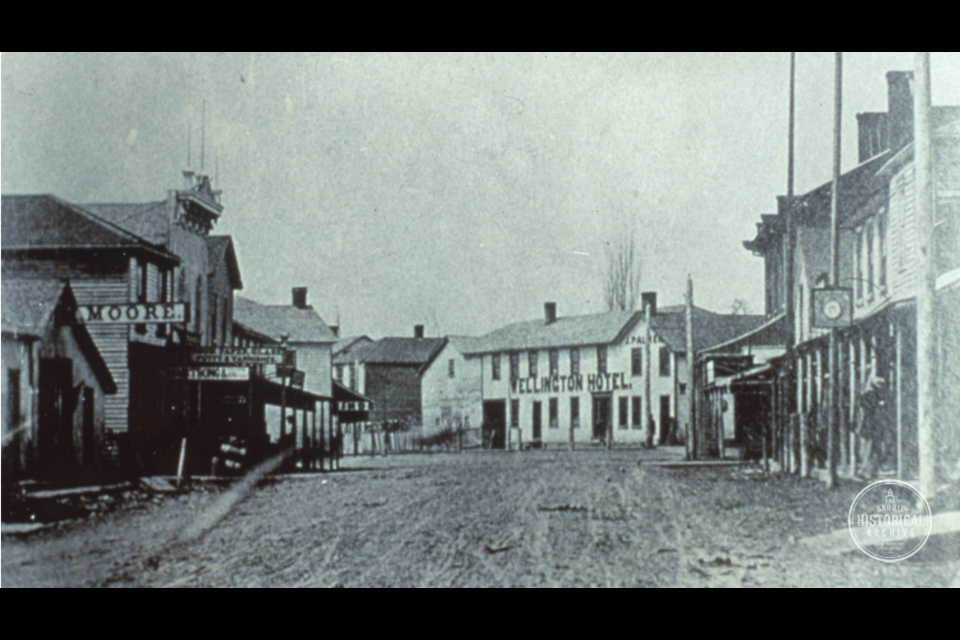It doesn’t happen often, but when it does, I’m all ears! Once in a while, during a history-related event or a quick visit to a business housed in an older building, it gets blurted out: “We have a ghost here.”
Two years ago, the Barrie Historical Archive presented its last live and in-person downtown walking tour before the pandemic situation put a sudden pause to the yearly event. The theme that year was the exploits of the Barrie Fire Service over the decades. As we wound our way through the oldest streets of town, we talked about places that had fallen to flames and others which had narrowly escaped.
The group was standing outside Barrie’s historic epicentre, the Simcoe Hotel, when a side door popped open and a woman stepped out. She had been working inside and observing us through the window.
After listening to our conversation, which included a mention of an upcoming haunted walk, she piped up.
The hotel employee was knowledgeable. She didn’t just have a vague feeling of some random spirit lurking in the building, but was confident about who it was and what it wanted. Elizabeth Meyer is here and she wants justice.
I know that name. The story of Elizabeth Meyer is one of the better-known tragic tales of old downtown Barrie. Mystery surrounds most of her life – who was she, who were her people and where did she come from? The cause of her death is no mystery, but how it came about remains unclear.
Was it an accident or a suspicious death? Elizabeth, we are told, would like us to know that it was the latter.
What is known is that Elizabeth was found lying at the front entrance of the Simcoe Hotel on a bitterly cold Sunday night in January 1872. She was brought inside, but it was soon determined that life’s spark had already left her.
Dr. Crookshank arrived and examined the body. He called for an inquest into the death to be held the next day at the hotel. The inquest, we can presume, involved gathering witness testimony and collecting any kind of evidence that might explain what happened to the unfortunate lady.
The Monday morning inquest was followed by a Tuesday afternoon post-mortem examination, which was performed by Dr. A. Ardagh.
All of the findings were then stitched together to inform the coroner’s jury, which came back with the following verdict: “Death from intemperance, exposure to cold, and certain injuries for which there is no evidence to show how received.”
The year 1872 wasn’t exactly the golden age of medicine and small-town doctors did the best they could with their limited resources. Although the Northern Advance reported at the time that “the body presented a number of bruises as if resulting from blows or kicks,” it couldn’t be determined how Elizabeth was injured, nor when or by whom.
The newspaper also added that “on the Saturday night preceding her death she was in a helpless state of intoxication.”
Was the fact that she had been drinking 24 hours prior to her death relevant, or did the jury assume that one episode of drunkenness meant that she was intemperate most of the time? We don’t know what else the jury knew but it doesn’t sit well with me, this little bit of borderline victim blaming.
I take no issue with the cold-weather angle. If Elizabeth had collapsed on a July evening, she may very well have survived.
The hotel employee who spoke to us said she feels Elizabeth’s presence in the old stone basement, particularly around the front entrance to the building. She feels that Elizabeth wants everyone to know that she’s still there and that she didn’t get the justice she deserved.
Each week, the Barrie Historical Archive provides BarrieToday readers with a glimpse of the city’s past. This unique column features photos and stories from years gone by and is sure to appeal to the historian in each of us.



